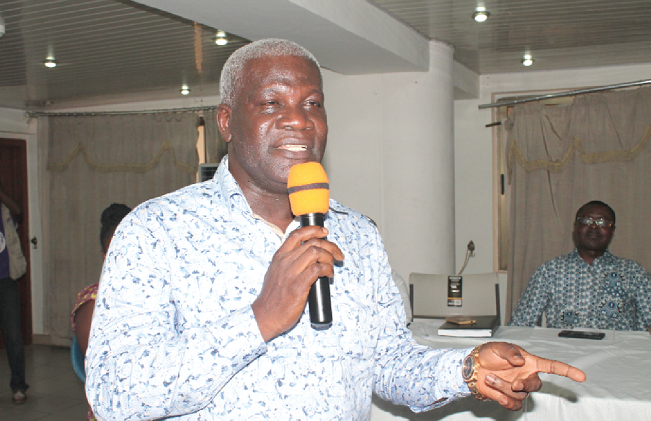The Industrial and Commercial Workers Union (ICU) has admonished workers to get more interested in issues bordering on their pensions as active employees.
The Social Security and National Insurance Trust (SSNIT) recently increased the benefits of pensioners by 11 percent.
However, a committee of the Trade Unions Congress identified gaps in SSNIT’s computation of pension benefits for contributors.
The committee reported that SSNIT misinterpreted what constitutes annual salary and early retirement reduction on lump sum which ultimately affect contributors’ benefits.
Government in a response indicated that it has started consultations in a bid to address this concern.
Speaking to Citi News, the General Secretary of ICU, Solomon Kotei said workers must not wait till they go on pension before they take keen interest in their benefits.
“We are looking at these investments that are managed by SSNIT and the fund managers on the second tier. How relevant are our figures accumulating? As of now, we are coming to this May Day celebration to actually wake up workers. Let them think through and ask themselves; are we to take bigger allowances and leave our base pay to dwindle.”
SSNIT not cheating pensioners – Director-General reiterates
SSNIT recently emphasized the need to review laws on the country’s pension scheme.
Director-General of the Trust, Dr. John Ofori Tenkorang noted that there should be considerations to pay beneficiaries based on the average of their total active years instead of the average of their best three years.
He made this point during a presentation at the Pre-May Day Forum held last week under the theme: Sustainable Pensions: The Role of Social Partners.
He said “SSNIT is committed to paying all legitimate claims that come before it. I must state unequivocally that SSNIT is not cheating pensioners. It is not in my interest or any SSNIT employee not to pay the legitimate claim to any pensioners.”
“And we must also have some conversation on whether it is appropriate to just pay dividends based on only best three years of contributions. In other jurisdictions like the UK, the lifetime average is what is used,” he added.











